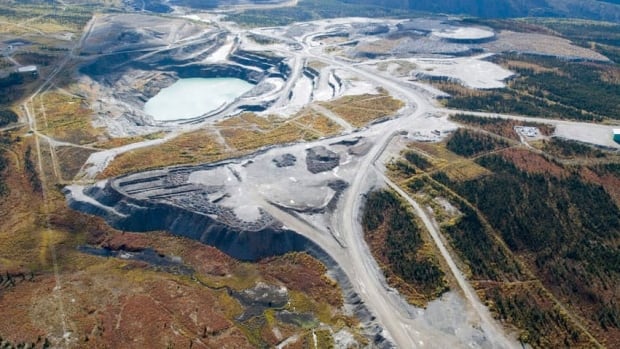
All emissions from Faro mine cleanup must be offset, review board says
CBC
While the cleanup of the abandoned Faro mine could release a "carbon bomb," the project may move ahead but on the condition emissions are offset, according to a new report from the Yukon Environmental and Socio-economic Assessment Board.
And not just some emissions. All of them.
But how?
The board's draft screening report, published earlier this month, lists possibilities like planting trees, creating wetlands, using electric vehicles, harnessing renewable energy or purchasing carbon offset credits.
Without these, the board is warning the cleanup could emit so much carbon dioxide that it would undermine the Yukon government's broader efforts to reduce territorial emissions as a whole.
Located about 200 kilometres northeast of Whitehorse, Faro was once the largest open pit, lead-zinc mine in the world, operating for nearly 30 years. Then, in 1998, when its owners declared bankruptcy, it was abandoned. Now, the Faro mine complex is one of Canada's most contaminated sites, with 260 million tonnes of waste rock — enough to cover downtown Whitehorse 90 metres deep, according to the federal government.
The cleanup itself could be a dirty job, potentially increasing the territory's total emissions between 30 and 46 per cent, every year, the report states.
Land clearing — like slash and burn — and carbon produced by vehicles account for about 89 per cent of the project's total emissions, the report states.
Data will need to be collected to make offsetting plans work, so the board recommends implementing an emissions tracking and monitoring system. Every two years, audits will also need to be undertaken by an independent body.
A staffer with Crown-Indigenous Relations and Northern Affairs Canada, which leads and finances the project, said in a written statement the department is reviewing the board's report and will respond formally afterward.
The board states in its report that emissions produced during the 15-year cleanup phase are of "substantial magnitude."
That's against the backdrop of the Yukon government's plan to reduce territorial emissions by 45 per cent by the end of the decade, though mining — including mine remediation projects — isn't factored into the target.
The report appears to put it bluntly: the project will "hinder" those aspirations anyway.
"Increases in GHG emissions for a sustained period of 15 years, it being a singular project markedly contributing at the territorial scale and said emissions substantially altering territorial emission levels leads the [executive committee] to determine that effects to climate change at the territorial level are significant," the report states.

Horizon's four regional hospitals are in such a critical state of overcapacity, trying to cope with a record number of patients who really belong elsewhere, the CEO is calling on the province to bump those patients ahead of other New Brunswickers waiting for placements in nursing homes and other community care.

 Run 3 Space | Play Space Running Game
Run 3 Space | Play Space Running Game Traffic Jam 3D | Online Racing Game
Traffic Jam 3D | Online Racing Game Duck Hunt | Play Old Classic Game
Duck Hunt | Play Old Classic Game










